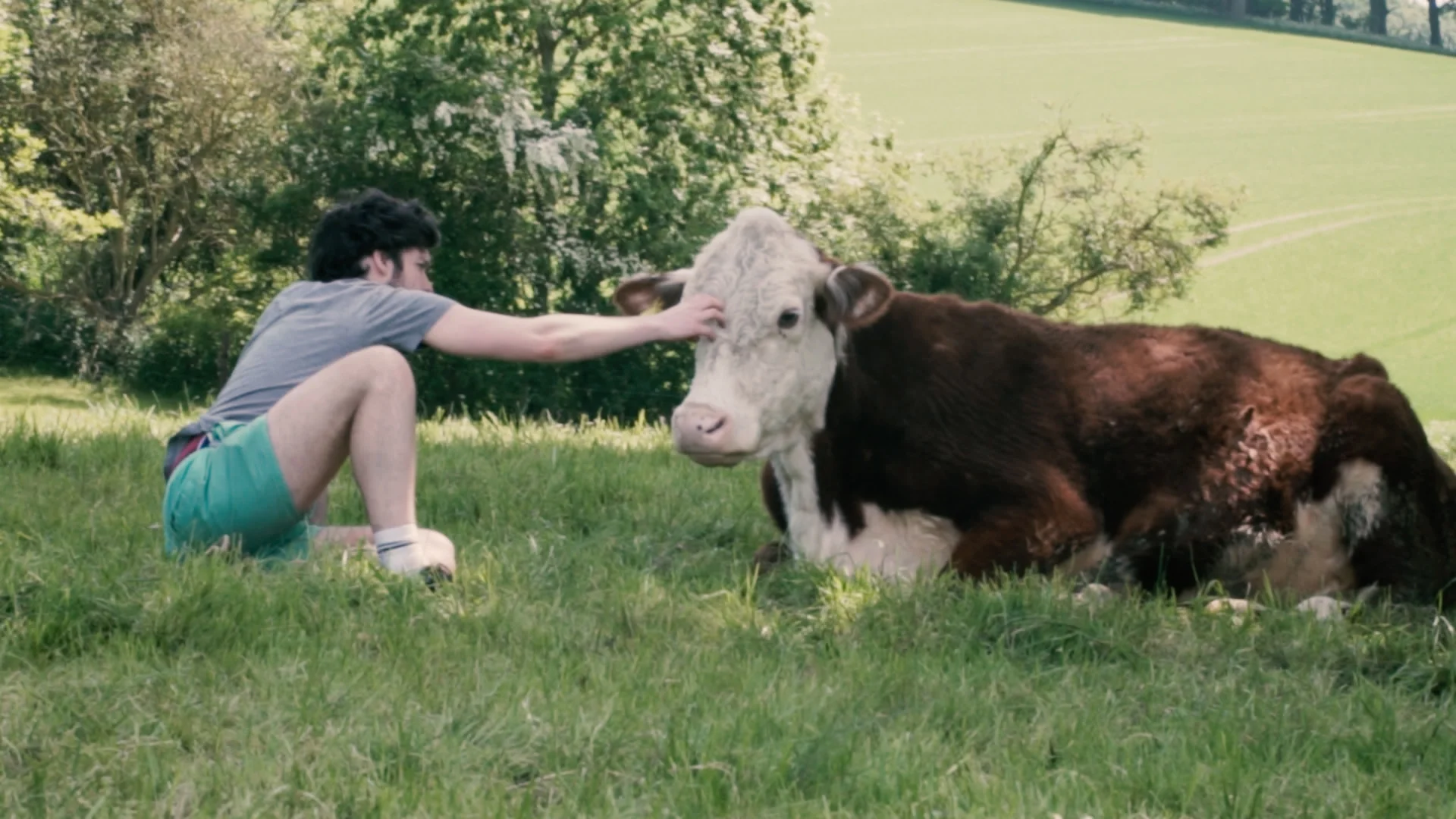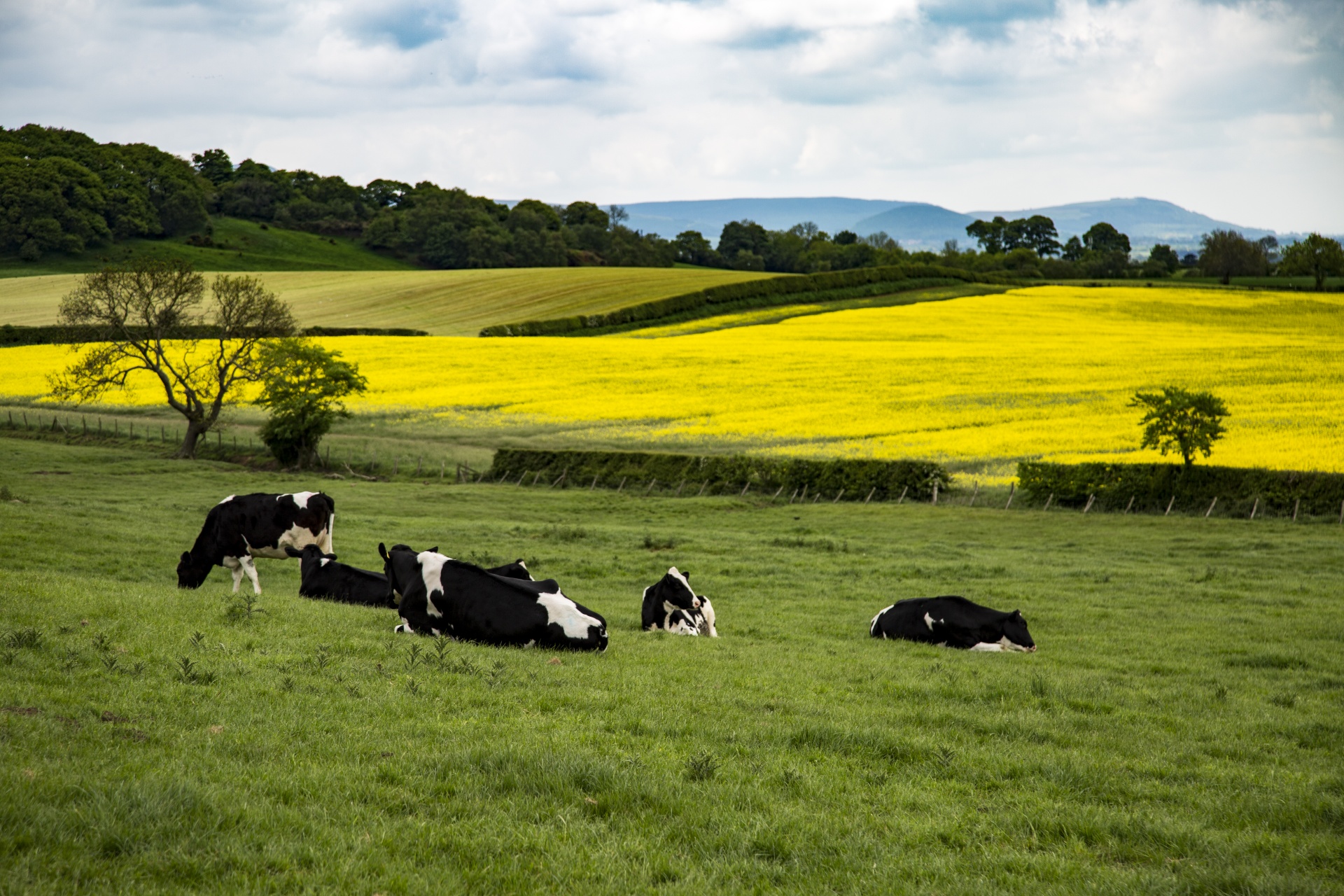Grass-Fed Beef
Is grass-fed beef better than grain-fed beef?
In terms of greenhouse gas emissions, the answer is almost always no… here’s why.
CAFOs
Travelling through the countryside, it often looks as though cows have pretty good lives – wandering around huge, green fields, happily grazing.
But most beef worldwide (though this isn’t the case in the UK) doesn’t come from these cows: it comes from cows in CAFOs (concentrated animal feeding operations).
In these CAFOs, cows are kept in close quarters, and they eat food brought to them.
But is it better if they eat grass or grains?
Grass
Cows didn’t evolve to eat food like we eat: they evolved to eat grass.
But grass is a very inefficient food source, and so they need to eat a lot of it, which means a lot of land for growing the grass, a lot of water and, if the land is badly maintained (as it is in most cases) a lot of fertilisers.
Also, the process of digesting grass releases a huge amount of methane. The more grass a cow eats, the more methane it produces.
Methane is 86x more potent a greenhouse gas than carbon dioxide (over 20 years).
Grain
For hundreds of years, people have been trying to accelerate the growth of cows, by feeding them more energy-rich, easily digestible foods, like the grains that we eat.
It speeds up their growth a little bit… but because cows didn’t evolve to eat grains, they don’t digest them well, and loads of the energy is wasted.
About 80% of the protein cows are fed is lost in their manure.
This means that we still need to use a large amount of land to grow a lot of food for them.
Also, to keep the cows healthy, we still need to feed them at least 30% grass (or similar), which means they’re still producing a lot of methane!
Furthermore, the methods used to grow this grain for cows often involve highly intensive farming, with large-scale use of fertilisers, and negative consequences for the soil.
The Bottom Line
Feeding cows grain reduces the land demand roughly tenfold.
Also, by feeding the cows grains, we’re reducing the amount of methane they produce.
If your main aim is to combat climate change, then the idea that grass-fed beef is better is wrong.
That said, producing the grain for cows to eat has numerous other negative consequences.
It’s also true that there are some methods of farming beef that have advantages for the health of topsoil, but these methods are expensive and require a lot of land, and they still result in more overall emissions than other protein sources.
In general, it’s better to eat no beef at all…



